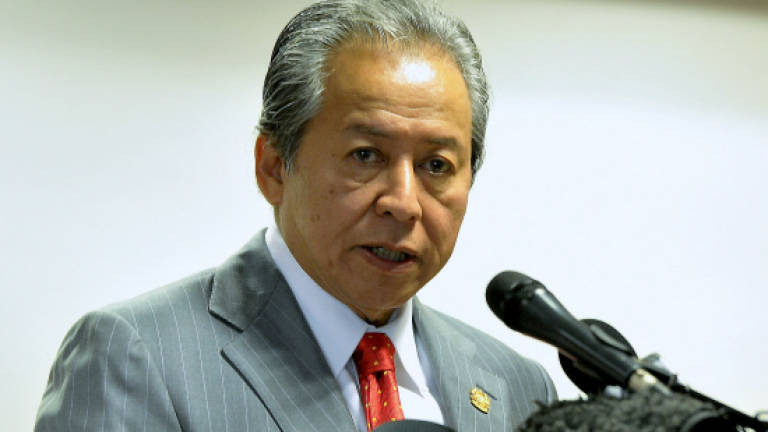Malaysia concerned Rohingyas may end up human trafficking victims

PUTRAJAYA: Malaysia is concerned that more than 400,000 Rohingyas, currently seeking refuge in Bangladesh in view of the developments in Rakhine state, could end up victims of human trafficking.
Addressing a high-level meeting on trafficking in persons at the United Nations (UN) in New York today, Foreign Minister Datuk Seri Anifah Aman said Malaysia, therefore, strongly urged Myanmar to heed the repeated calls by the international community to end the violence against the Rohingyas.
"The transnational crime syndicates will harvest human miseries on the sordid situation," he said at the high-level meeting of the general assembly on the appraisal of the UN's global plan of action to combat trafficking in persons.
In his address, Anifah said Malaysia joined the international community in addressing the scourge of human trafficking.
"Malaysia condemns these heinous crimes, and accords the highest priority in combating trafficking in persons," he said.
He said Malaysia was not only a transit and destination country for the victims of trafficking in persons but its citizens too, had become targets.
In response, Malaysia had instituted adequate national laws, particularly the Penal Code and the Anti-Trafficking in Persons and Anti-Smuggling of Migrants Act 2007.
"As a consequence, convictions have increased substantially," said Anifah, adding that Malaysia had also established the inter-ministerial Council for Anti-Trafficking in Persons and Anti-Smuggling of Migrants in 2007, chaired by the Deputy Prime Minister Datuk Seri Ahmad Zahid Hamidi.
He said Malaysia's efforts were also being guided by its National Action Plan on Anti-Trafficking in Persons (2016-2020), which was consistent with the 2010 Global Plan of Action.
Anifah said based on Malaysia's record, the majority of human trafficking victims were from neighbouring countries.
"In this regard, Malaysia placed high premium on the centrality of bilateral and regional cooperation in combating this transnational crime."
The foreign minister said Malaysia had, on Sept 7 this year, ratified the 2015 Asean Convention against Trafficking in Persons, Especially Women and Children (Actip).
Malaysia was also an active member of the Bali Process on People Smuggling, Trafficking in Persons and Related Transnational Crime – a regional mechanism and arrangement to combat the scourge, he said.
"Malaysia is determined based on the measures that have been in place to prosecute the perpetrators and provide protection to the victims," he added.
"We believe in a comprehensive approach with greater emphasis on prevention, particularly addressing the root causes in the source countries," he added.
Anifah said the solution to the complex issue of trafficking in persons required collective efforts, by both state and non-state actors.
In this regard, he said, Malaysia was of the view that the measures outlined in the Political Declaration served as an excellent basis in steering the way forward.
The UN general assembly on Wednesday adopted a political declaration reaffirming commitment to implement an action plan to combat human trafficking. — Bernama